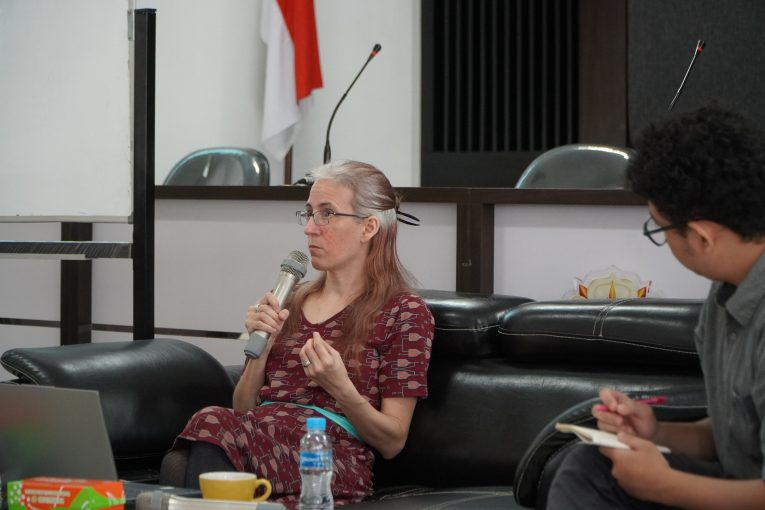
In celebration of World Logic Day, the Faculty of Philosophy at Universitas Gadjah Mada (UGM) held a public lecture titled “Why Logic Matters”. The event featured Dr. Sara L. Uckerman from Durham University, United Kingdom, as the keynote speaker. It marked the culmination of a series of lectures, following two earlier sessions on January 6, which covered the topics “History of Logic” and “Fiction Writing as Philosophical Methodology”.
The series drew significant attention from students and participants representing various institutions, including UGM, Universitas Negeri Yogyakarta, Universitas Nahdlatul Ulama, Universitas Ahmad Dahlan, and others. In addition to in-person attendance, the event was broadcast live via the official YouTube channel of the Faculty of Philosophy, enabling a wider audience to engage in discussions about logic and its multifaceted applications.
In her lecture, Dr. Uckerman emphasized the importance of logic as a discipline that transcends philosophy and impacts everyday life and various other fields. She began by exploring the diverse definitions of logic, which vary depending on the discipline.
In philosophy, mathematics, and computer science, logic is often defined as the theory of deductive inference or logical consequence. Meanwhile, in more popular contexts, it is associated with reasoning or problem-solving methods.
However, according to Dr. Uckerman, the essence of logic goes much deeper. Logic is not merely a tool for analyzing argument structures but a framework for understanding, evaluating, and constructing sound arguments. She highlighted that logic enables us to recognize valid arguments and distinguish strong arguments from weak ones, whether in academic discussions or everyday life.
“Logic equips us with tools to navigate a world filled with information and misinformation, divisive debates, and challenges in effective communication,” she asserted.
Dr. Uckerman also addressed the distinction between singular logic (logic) and plural logics (logics). The paradigm shift from a singular logic to multiple logics allows for greater flexibility in understanding and handling diverse and complex argumentative contexts.
As a philosopher and logician, she elaborated on the historical significance of logic, from Aristotle’s era to the advancements of modern logic. She explained how Aristotle, defining humans as rational beings, developed the first formal logic to understand the relationship between essential and accidental properties in objects.
In contemporary life, logic plays a vital role across various domains, including education, technology, communication, and public policy. Dr. Uckerman illustrated how logic can help address arguments on social media, detect misinformation, and promote more constructive dialogue in increasingly complex societies.
“We use arguments to convey information, persuade others, and explain ourselves. Logic not only helps us evaluate others’ arguments but also enables us to construct better arguments of our own,” she added.
The lecture received positive feedback, with participants actively engaging in the Q&A session. Many appreciated Dr. Uckerman’s ability to make complex logical concepts accessible and relevant to practical needs.
The Faculty of Philosophy at UGM hopes that the World Logic Day series will inspire a broader understanding and application of logic across disciplines and in everyday life. By highlighting the theme “Why Logic Matters”, the event successfully demonstrated that logic is not only pivotal to philosophical inquiry but also central to fostering a more rational, critical, and inclusive society.
